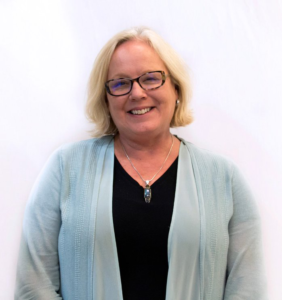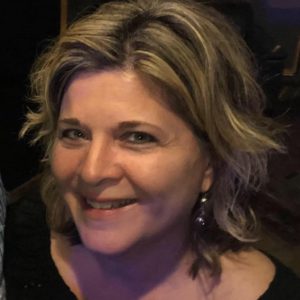Connecting ELLs to HSE Opportunities in Adult Education
Did you know that VALRC has podcasts? Our newest podcast, “Connecting English Language Learners (ELLs) to High School Equivalency (HSE) Opportunities in Adult Education” is now available on our website.
In this podcast episode, Hali Massey, VALRC’s ESOL Specialist, and Elizabeth Severson-Irby, VALRC’s Literacy Specialist, discuss strategies for connecting English language learners (ELLs) to high school equivalency (HSE) opportunities with Carol Coffey, Director of TJACE in Charlottesville (Region 10), Shekera Alvarado, Northern Virginia Adult Education Program Manager (Region 8), and Laura Hardy, an ESOL Instructor in Newport News (Region 21). The speakers discuss how their programs address transitioning ELLs from ESOL to HSE classes, serving ELLs in ABE/HSE classes, and training ABE/HSE instructors to work with ELLs in their classrooms.
Listeners can use the following contact information to connect with this episode’s speakers to ask questions or further discuss the strategies presented in this episode.
 |
Carol Coffey Thomas Jefferson Adult Career Education Piedmont Virginia Community College |
 |
Shekera Alvarado Northern Virginia Regional Adult Education Program Fairfax County Public Schools |
 |
Laura Hardy Peninsula Regional Education Program |
Our podcasts are also designed so that programs and learning communities can use them for a team enrichment activity or colleagues can engage in dialogue together. We have Reflective Questions that can be used to spark discussion. In our current podcast, we pose questions in four areas taken from the podcast.
Transitioning English language learners from ESOL classes to HSE classes
- What strategies does your program use to provide information and education on what HSE is and its importance for college and career goals?
- What strategies does your program use to identify ELLs who have the goal of pursuing their high school equivalency? Why or how have those strategies proven to be effective?
- What instructional strategies are integrated into your ESOL classes to provide support to learners who may be interested in pursuing their HSE?
Serving English language learners in ABE/HSE classes with native English speakers
- How do instructors consider English language proficiency levels when providing learners with feedback and support?
- How do instructors include opportunities for English language development in classes with mixed enrollment while maintaining focus on achieving HSE?
Training ABE/HSE instructors to work with ELLs in their classrooms
- How does your program ensure that ABE/HSE instructors with ELLs in their classroom receive ESOL training?
- What resources does your program use for training ABE/HSE instructors for ESOL instruction?
- What support does your program provide to ABE/HSE instructors when placing an ELL in their classroom?
Providing additional supports for English language learners pursuing their HSE
- What additional supports are provided to ELLs pursuing their HSE?
- How are additional supports communicated to ELLs?
We also include related links to resources that can further inform your discussions and provide for deeper dives into the topics covered.
Be sure to check out our other eight podcasts to hear what your colleagues around the state have to say about a range of topics in adult education. You can even create your own playlist to take with you on the go.
Do you have a topic or suggestion that would make for a great podcast? Let us know! You can send us a direct message straight from our website Podcast’s page.